When my child struggles, misbehaves or acts out, I can sometimes get into the trap of blaming myself. I’m guessing that you can relate to this too.
I know I’m not alone in this because in my work with parents, self-judgment and blame are a pretty common pattern. Especially if the parents have an intense child; the judgment comes not just from the self but also from teachers, doctors, social media, and family members too, and it can be a pretty unhelpful and vicious cycle.
In my own experience, at the same time that I might be blaming myself, I know that my child also holds some responsibility for how they are acting and the choices they make.
It’s this concept that I wanted to explore on the blog this week, where we talk about whether it’s the parent’s fault when their child misbehaves.
Someone once told me that humans are the only animals who can hold two opposite realities simultaneously. Humans understand that life is not always “either/or”, that it sometimes is “both/and”.
There are two paradoxical realities that occur in parenting. They might sound like opposites at first, but I think they can both be true at the same time.
Here’s an example… Your child misbehaves in front of other people.
You might feel embarrassed, angry, defensive, annoyed, irritated, or maybe you even feel shame, especially if you’re trying really hard to “do all the right things” in parenting.
You might think, “When people see my child act that way, what will they think of me?” or “My child’s behavior is a reflection of me.”
But is this really true? Are we actually “to blame” when our child loses it? Is our child’s behavior a reflection of us?
What if your child’s behavior is not a reflection of you–or your parenting–at all? What if your child’s behavior is just a reflection of the struggle they’re having at the moment?
Maybe your child’s behavior is an attempt to communicate “I need help over here” or “I’m feeling lonely, hungry, angry, or tired”.
What if their behavior just “is”? Maybe we don’t have to take their behavior personally at all. Maybe your child is having a meltdown because your child is having a meltdown.
Here’s where the paradoxical part comes in…
I also understand that we influence our kids. Our kids pick up on our feelings. We pick up on theirs. We are social beings, intricately connected to each other.
As parents, we have an influence on our kids, through what we say, how we act, or even just our presence. We influence our kids by the genes we’ve passed on to them, the experiences they’ve had growing up, and how we’ve helped them to make sense of those experiences.
AND maybe we don’t need to blame or shame ourselves because of our child’s behavior.
If you paused for a moment you could probably remember a time that you did “all the right things” and your child still had a meltdown. AND you could probably remember a time when your child acted wonderfully, even when you totally messed up in your parenting.
What I’m asking you to try today is to hold in one hand the reality that “my child’s behavior is a reflection of their struggle, not me”, and hold in the other hand, “my parenting influences my kids; we are connected”.
Meditation or Journaling Questions
Do these two realities change your perspective of your child?
Does it give you more freedom or lightness in your parenting?
Does it lift away some of the embarrassment or shame?
Does it give you more compassion for yourself or your child?
You can write your thoughts to me in the comments below. I read and respond to every comment.
Just for today, I invite you to think, “My child’s behavior is a reflection of their struggle–it’s not a reflection of me.”
After reading the blog today, do you want more parenting support from me and meet similar parents?
You and I can personally talk in there if you’re struggling to figure out how to talk to your child.

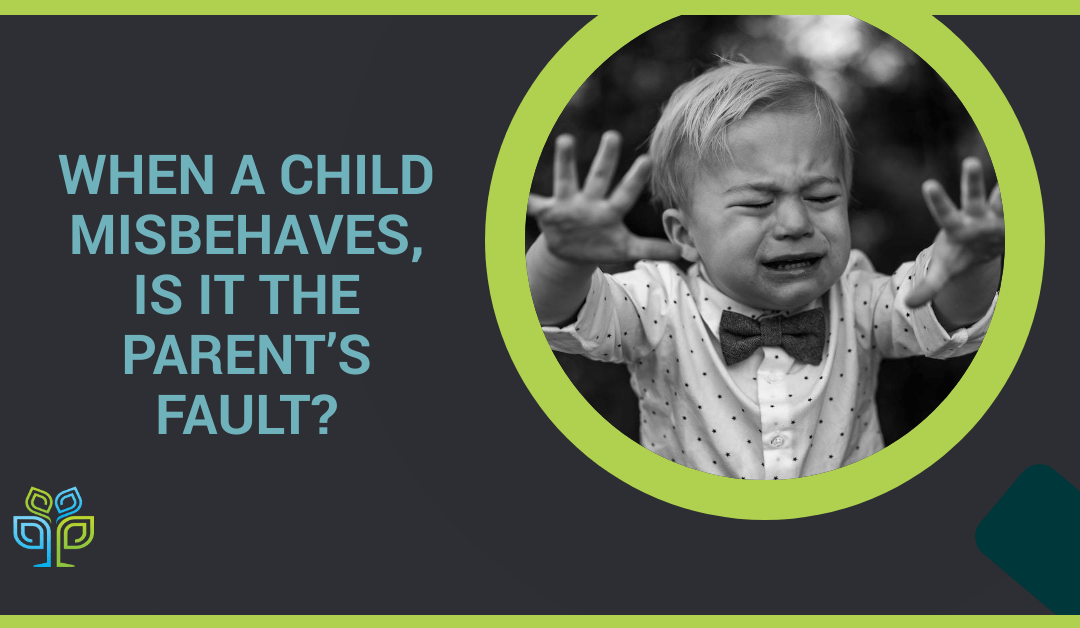


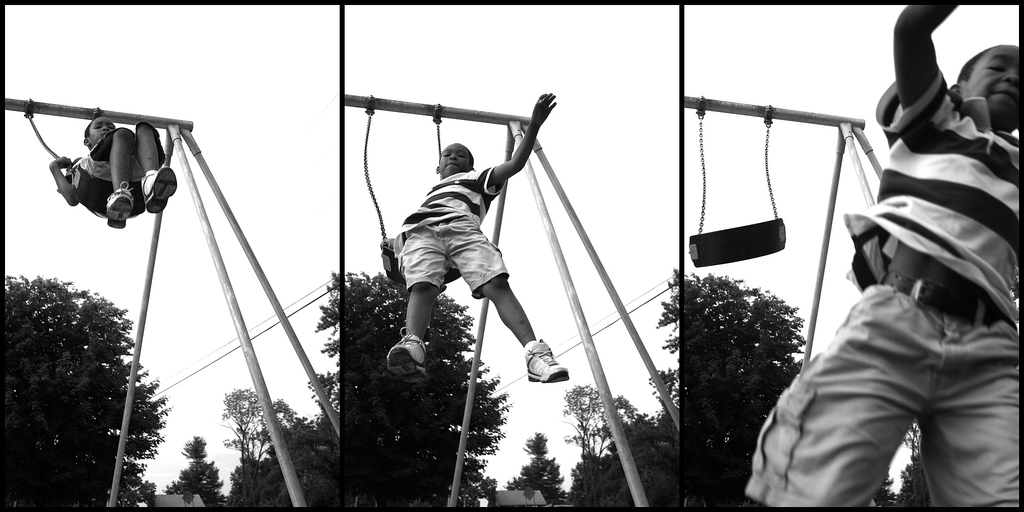
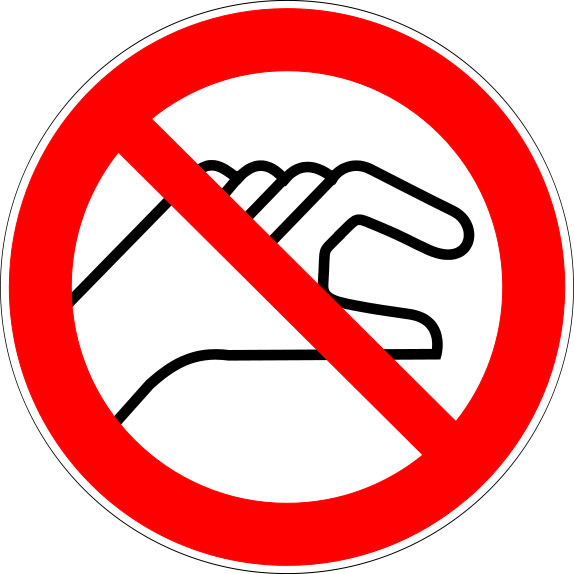
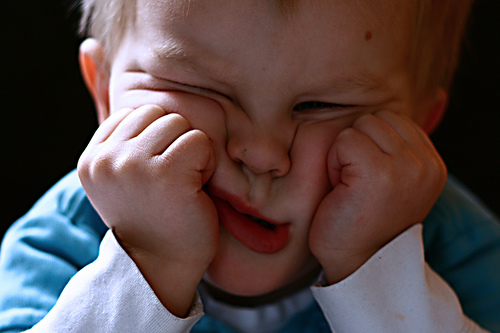
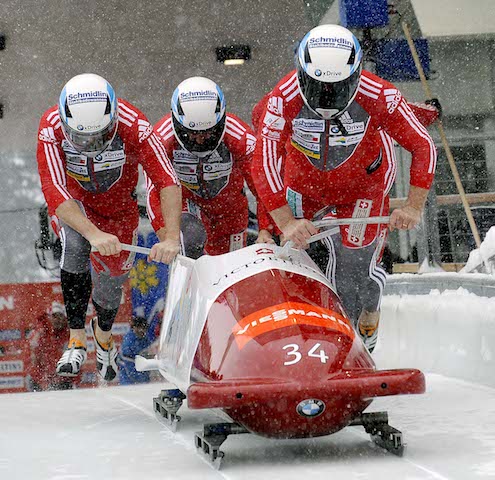


I hear you, Eileen. It’s SO hard when this happens in public. When my kids were little and having public meltdowns I’d just keep my head down and try to concentrate on what my child needs, but it’s not easy when I feel the eyes all around me!!
My son is 27 months, he is at a stage where he sometimes acts out when he’s dealing with disappointment like being told no. I understand that at his age he doesn’t understand how to deal with his emotions and communicate his feelings thought that means. But I understand him at this stage and I try to explain to him in a way that he may understand. Although I may feel embarrassed in public I know that no one else will understand my child but me.
Kareen, it sounds like you have a lovely relationship with your son and you really understand him.
My son is 27 months, he is at a stage where he sometimes acts out when he’s dealing with disappointment like being told no. I understand that at his age he doesn’t understand how to deal with his emotions and communicate his feelings through that means. But I understand him at this stage and I try to explain to him in a way that he may understand. Although I may feel embarrassed in public I know that no one else will understand my child but me.
The only thing I say is, I do think we parents in an understanding, compassionate way, need to learn to take more responsibility for some of the ‘behaviours’ and habits and perhaps personalities/personality traits they develop eg. are they honest, do they give things a go and persist or quit, are they late or on time, are they kind and thoughful, how they handle anger, frustration, how they handle disappointment etc. Not so much the melt down, bad behaviour in the moment stuff – I totally agree with the above or well definately some of the ingrained and or still learning behaviour also comes out in those melt down moments eg. how they handle or maybe in process of learning how to manage/control their impulses, anger, disappointment etc. I say this because I see/hear so many parents blame everyone eg. teachers and everything else and worst, they blame the child/chilren. I see so much of how children are in the reflection of us parents. Is a child scrared to give things a go? Why so many kids are timid, have anxiety about the little things because the parents the parents are scared to let them live and wrap them in cotton wool. When I say take responsbility, I don’t mean take the blame or blame oneself & I have to admit it is hard because I haven’t worked that out myself yet – but just like in our own lifes when we start taking responsiblity for the results we get in our own life, we take back the power to make changes. I think a new movement that supports parents and guides them in ‘accepting responsbility’ in a compassionate, reflective way that helps them become aware of the impacts their own behaviours have on their children who they love and want the best for. A tough one because it can be challenging to look and own our own stuff, shadows. The unconscious patterns that we’ve taken on from our parents and they from theirs etc. A simple example – we were being late to basketball, me always saying hurry up and getting there late until one day my sons (6yo) mood was so low, he just didn’t participate. Many might say ‘der’ to me but I got real that I was the adult and us being late was me, I wasn’t allowing enough time, being organised enough for him and it was effecting, his mood and how he bahaved and importantly the natural consequences of how people respond and react to him because then of that behaviour was on me. So I took it onboard, and started to change my ‘always late, rushed’ behaviour (still WIP but have made a lot of improvements) and wow his behaviour changed. I am learning to be more aware of what I do and how it impacts, reflects on my child. I have a lot to learn about myself and how it impacts and reality is it is going to take time so I’m not going to be able to course correct everything and nor maybe should I. What I hope to do is to equip my son with the tools to as he grows and in time question his behaviours, understand he has choice, take responsibility himself for his choices, behaviours knowing he has a choice of how he behaves. I would looove some more training on that stuff and am doing some indirectly eg. on myself but would love it for myself and love to see it for other parents. They say best thing a parent can do is clear their own stuff. I know we do not need to blame parents anymore, no more parent guilt thank you but learning to take responsbility for the impacts and influence on how our children develop their reactions, ingrained behaviours, personalities. Too many parents what to blame everything else. Growth Mindset for parents :-) Taking responsibility is not taking blame. Status quo – that gap, space between learning, understanding responsiblity and not blame in current status quo ie. where society is at now, is a big gap and hence too painful for many to look at their own self, behaviours but hopefully we can for the sake of our children.
I like what you’ve said here Annie about doing self reflection to see what we can improve on in our parenting, but also not blaming ourselves. That’s a wonderful way to balance thigns.
I really love this perspective, because it is not about me. It is about my child’s experiences at this time. By taking this perspective, I can know that I have an influence on the situation, but it removes my defenses and allows me to attempt to understand where my child is, what they need and to be there with them and allow them time and love and empathy instead of anger, irritation or frustration. I can breath knowing it is not about me!